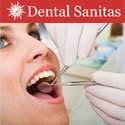
A too-high concentration of cancer-causing dioxin has for the first time been detected in samples of meat following the discovery that farm animals were fed contaminated feed in Germany.
A spokesman for Germany's agriculture ministry said yesterday that three chickens – out of 15 samples of chicken, turkey and pork meat that have been sent to the EU Commission – showed a dioxin concentration twice as high as legally allowed. Excessive dioxin levels were previously discovered in eggs. The ministry said meat from the contaminated chickens was not sold and consumption at such a low contamination level would not be harmful in the short term.
Germany has frozen sales of poultry, pork and eggs from more than 4,700 farms, amid fears that farmers could have been using tainted livestock feed for months. Officials in Britain and the Netherlands have been investigating whether food containing German eggs – such as mayonnaise or liquid egg products – was safe to eat. Several mainly supermarket-branded cakes have been identified as possibly infected. They include some Tesco cakes for children.
On Friday, prosecutors launched an investigation into the German firm Harles & Jentzsch, suspecting the company knew but failed to tell authorities that fat it had produced for use in feed pellets was tainted with dioxin. Schleswig-Holstein agriculture minister Ilse Aigner said: "If it is confirmed that the company knew since March that its fat was tainted but it did not inform authorities, then that is highly criminal activity."
Test results showed that some of the fat contained more than 77 times the approved amount of dioxin. Out of 30 samples tested so far, 18 contained more dioxin than legally allowed, it said.
Dioxins are contaminants that often result from industrial combustion and other chemical processes. Exposure to dioxins at high levels is linked to an increased incidence of cancer. Dioxin levels tend to be highest in eggs because of the high fat content in eggs.
Authorities believe up to 150,000 tons of feed pellets for poultry and swine may contain the contaminated industrial fat produced by Harles & Jentzsch. Harles & Jentzsch did not immediately respond to calls seeking comment. But chief Siegfried Sievert said earlier that the company believed that by-products from palm, soy and rapeseed oil used to make organic diesel fuels were safe for use in livestock feed. All of Germany's 17 states were also carrying out tests on milk and meat as an extra precaution. According to the most recent tests on eggs from farms where chickens ate the contaminated feed, Sievert said "two-thirds have been clean and about one-third have been right on the border of what is considered dangerous".
The scandal broke after random testing revealed excessive dioxins in eggs from western Germany last week. Over 8,000 chickens were ordered slaughtered and tainted food fears spread to Germany's famous pork industry.
Germany's agriculture ministry said on Friday it had no immediate reports of health problems connected to the contaminated food, but it froze the slaughter of all livestock from certain farms until more tests could be carried out.
Geert De Poorter, lab director-general at the Belgian food safety agency, said that compared to the 1999 dioxin food scare in his country, the amounts found in Germany so far have been minor. In 1999, dioxin from motor oil was mixed into animal feed in Belgium, leading to widespread import bans and food being pulled from the market. That scandal prompted the European Union to establish maximum levels for dioxins in livestock feed in 2001.



 del.icio.us
del.icio.us digg
digg Facebook
Facebook







